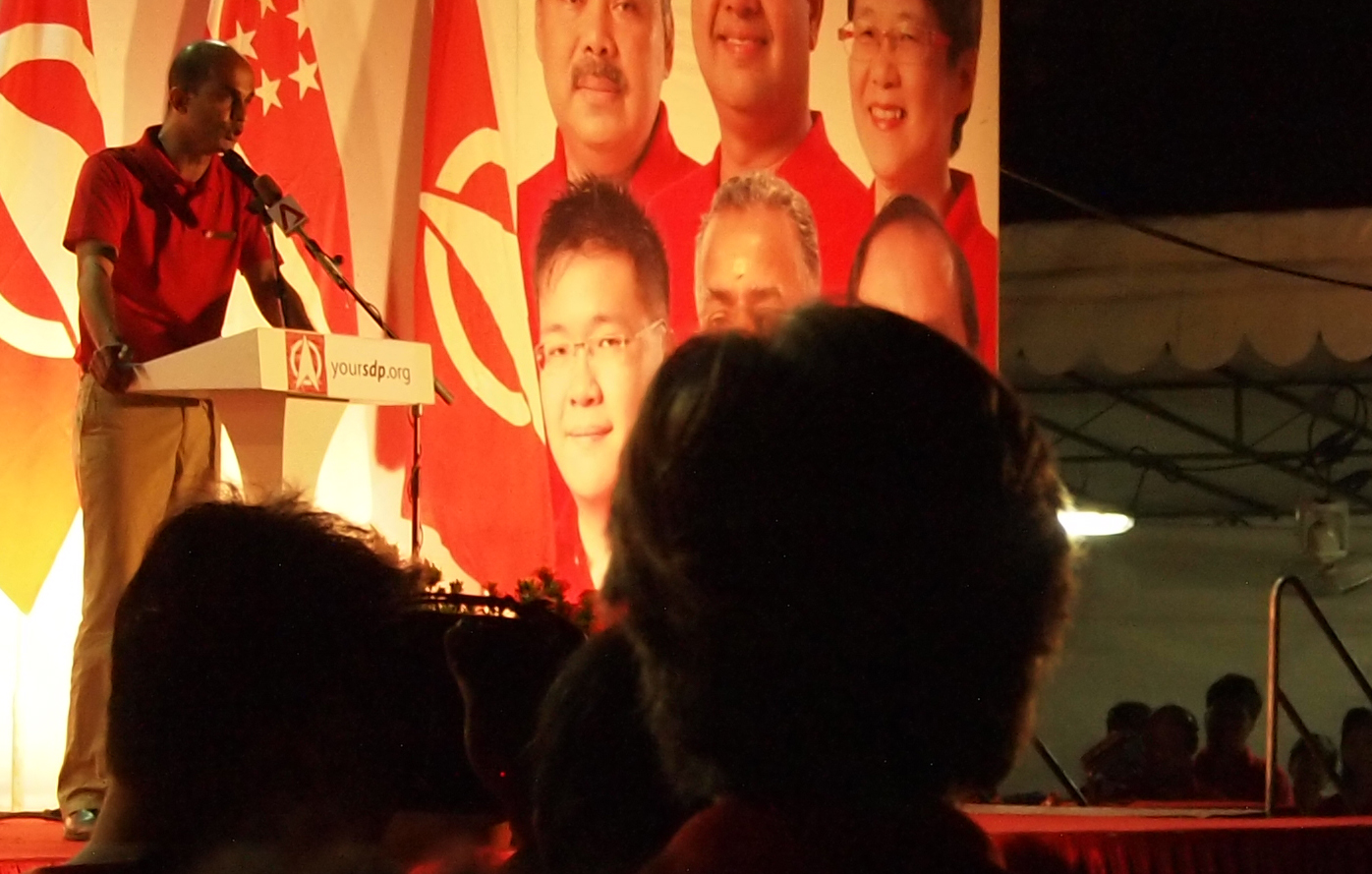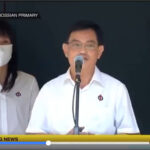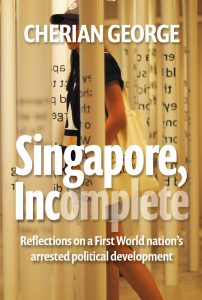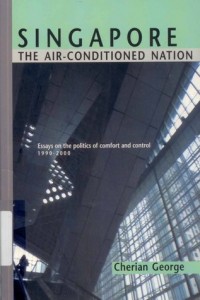ACTIVISM BEYOND PARTIES
Not all worthy causes are vote-winners; that’s why politics shouldn’t be left to political parties.
August 28, the day that Vincent Wijeysingha announced his resignation from the Singapore Democratic Party to devote himself to the struggle for civil liberties, happened to mark the 50th anniversary of Martin Luther King Jr.’s “I Have A Dream” speech, addressed to the largest civil rights demonstration in history. Whether this was pure happenstance, a conscious nod to history, or ordained by zodiacal forces – I have no idea. In any case, the coincidence does inspire reflection on the role of such activism in modern politics.
In normal countries, it is unremarkable to see individuals pass back and forth through the revolving door between electoral politics and civil society activism. Several politicians come from civil society in the first place and quite naturally return to their roots. Ralph Nader continues to work as a consumer rights and environmental activist in between US presidential bids. In Malaysia, many leading lights straddle party politics and civil society. Irene Fernandez, for example, is a council member of the opposition PKR, but is better known as a human rights defender and the head of advocacy group Tenaganita.
In Singapore, few politicians come from civil society, and the little traffic there is tends to be one-way. PAP ideology prefers political beings to go through a life cycle with distinct stages, culminating in elected office. It’s like metamorphosis. A caterpillar is allowed to transform into a butterfly, but while it’s just a caterpillar, it should know its place, keep its head down, and never act as if it has the right to flaunt its colours or to fly – that’s butterfly territory.
Over the decades, the government has reinforced this order by restricting societies’ establishment and operation. It also sticks on troublesome groups and individuals such labels as “political”, “agenda” and “partisan” (pap for short; you could say that big PAP is not fond of little pap’s), which basically means that they will be treated as akin to national security threats.
The logic of these labels is questionable: after all, any intervention in the public sphere is at some level “political”. And when does a passionate interest in issues (something that the government says it wants to encourage through initiatives like the proposed Youth Corps) become an “agenda” deserving of its proverbial knuckle-duster treatment? As for partisanship, not even a constitution that disallows it from affiliating itself with any political party was able to save the human rights group Maruah from being subject to the Political Donations Act, which was ostensibly meant to keep money out of the electoral system.
But so overpowering are these labels that most of their targets usually scramble to live them down, rather than trying to challenge the assumptions behind them. Most civil society groups tend to err on the side of caution rather than risk being called “political”. And the SDP took pains to stress that it did not have a gay “agenda”, whatever that means.
Twenty years ago, a bunch of political kaypohs (including this one) got together to form a group called the Roundtable. It challenged the government’s position that individuals with a political agenda should only work through political parties. We felt differently: that it was the right and responsibility of citizens to be engaged in our nation’s civic life, and that non-partisan engagement was both necessary and legitimate.
The Roundtable managed to get registered as a society and operated for a few years before it ran out of steam. It would be nice to believe that the group pushed back the “OB” markers, staking out a bit more space for civil society.
However, the ruling party’s ideology still has a strong hold. To see how deeply entrenched is the PAP’s life-cycle view of political participation – that individuals who are serious about their causes should come out from civil society, join political parties and not turn back – look no further than some of the comments that greeted Wijeysingha’s announcement. “If you want change, join a political party, rally people to your cause, get into Parliament – and change things,” went one.
Clearly, the significance of that day’s worldwide remembrance of Martin Luther King and the civil rights movement was lost on such commentators.
The simple reason why civil society activism is a vital complement to electoral politics in a democratic society is that not every worthy cause is a vote winner. Often, it takes time for the majority to get on board. Sometimes, they never do. Government leaders then have to decide whether to do the right thing even though most voters remain nonplussed or outright opposed to change.
In proportional-representation systems, parties can win seats despite championing minority causes. Green parties in Europe are a case in point. But in a first-past-the-post, winner-take-all electoral system like ours, it is unlikely that any political party will push issues supported by only a minority of voters. Invariably, civil society activism is needed to give governments a nudge.
As necessary as electoral democracy is for a country’s well-being, it is not sufficient. Consider some of the principles that today’s Singaporeans benefit from. The right of women to vote; or of Asians to govern their own societies. The moral unacceptability of putting children to work instead going to school; or of enslaving adults.
We now take these for granted as fairly basic requirements of a civilised society. Yet, these principles did not always enjoy such common-sense status. In an earlier time in many societies, even many victims who stood to benefit from enlarged rights and liberties did not consider their lot as an abomination but as the natural order of things. Changing people’s attitudes and lawmakers’ calculations took decades of consciousness-raising by activists, writers and other people of conscience who were focussed on winning the favour of history, not conforming with the flavour of the times.
Let’s not kid ourselves that we – in Singapore or anywhere else – have already achieved a state of civilisational perfection. Future generations will be contemptuous of some of today’s social mores and public policies, just as we look down on our forebears for practising or condoning what we in a more enlightened age know to be wrong. It would be hubris to expect otherwise. The only uncertainty is what exactly history will judge to be the greatest injustices of our time. For those who would like to know sooner than later, history shows that the clues are more likely to come from civil society than from political parties.







Mayank
If only civil societies always worked for the betterment of society, rather than that of a confined interest group. A civil society group is not subject to scrutiny at the ballot box, the only place where every single person’s opinion is actually tabulated. Hence their power to portray a point of view needs to be kept in check lest it challenge the government’s legitimacy. Help is welcome but competition is not seems to be the government’s mantra and I feel it is a healthy one. The devil’s going to lie in the details of how the government actually brings civil societies into the fold and creates a healthy working relationship, rather than a combative one in which the government is seemingly bound to win.
Cherian George
Yes, civil society groups cannot claim the legitimacy that can only come through elections. That is why we do not and should not give them law-making powers. Unfortunately, the PAP goes beyond that, trying to limit even the influence that civil society groups try to exercise through persuasion. Do citizens really need that kind of protection from mere ideas?
Bryan Ti
“The simple reason why civil society activism is a vital complement to electoral politics in a democratic society is that not every worthy cause is a vote winner. Often, it takes time for the majority to get on board. Sometimes, they never do. Government leaders then have to decide whether to do the right thing even though most voters remain nonplussed or outright opposed to change.” ~ Cherian George
….I agree that ‘civil society’ can perform certain functions that political parties can’t.
But the last statement seems to refer to what the ruling party has been doing for decades with regards to implementing unpopular policies. It had assume that most voters are nonplussed, self-centered and short-sighted, and are ‘outright opposed to (certain) changes’ that would benefit the country at large or in the longer term.
The unpopular decisions not only made the people angry, they were criticised by the so-called alternative media and ‘prominent’ bloggers.
The price: 1xGRC and 1xSMC.
Now somehow Cherian (idealistically) seems to think that the ruling party should force unpopular decisions through based on the causes championed by civil society’s confined considerations and for which the people are ‘nonplussed’ and not supportive.
Brilliant, but nonplussed, Cherian.
Cherian George
Hi Bryan Ti. Probably my fault for not using specific examples. But I certainly wasn’t referring to policies that are unpopular mainly because policy makers weren’t responsive enough on the ground. The fact that the opposition was able to benefit electorally by playing up these mainly “bread-and-butter” issues shows that these issues obviously don’t belong in the category that I am talking about – issues that no major party is prepared to champion because they know that the impact on votes would be neutral or negative. LGBT rights are the obvious example: the PAP leadership probably knows what is the principled stand to take, but it lacks the moral courage to take that stand and face a backlash from the conservative ground. The rights of foreign workers also belong here. I noted in an earlier blog that in the dying minutes of the Workers’ Party’s 2011 campaign, Low Thia Khiang expressed solidarity with Serangoon Gardens residents who were opposed to building a foreign worker dormitory there. It was a clear example of how electoral pressures can be at odds with progressive principles.
harishpillay
It probably is time to review the idea of Roundtable given the new realities. I’m keen if you are.
Cherian George
Hi Harish. I think a 21st century Roundtable could either take the form of a more professional independent think tank to contribute to policy making or a human rights organisation to take up certain pressing issues like freedom of expression. Both ideas have merit. I’m personally more interested in the second, which is why I’m a member of Maruah. Whatever you do, keep that pink hat on, bro!
Sam
I would like to see formal debates between civil society activists, academicians, political watchers, politicians etc. on various issues. I would prefer that these debates be organized by independent organizations rather than by our MSM though. These debates could help increase the political literacy of ordinary Singaporeans which I think is dismally low at present.
George Lam
On the matter of the Youth Corp, IMO it is typically PAP tactics to duplicate/copy ideas, that it sees as containing a potential political threat, in order to disarm them. I refer you to the Nizam ‘case’. He was obviously seen as a potential ‘subversive’ out to orientate youthful Malays away from the PAP or worse, against the PAP. There was why he was taken down.
It is not unjustified to think that the PAP is so complacent (and indolent?) as a political party (and by inference, govt) that it has long ceased to feel obligated to take the lead in initiatives for the true betterment and strengthening of society and the Singapore system. It does only what it deems as necessary to protect its vested interests. We all know the kind of half-hearted and inane results to expect from such motivations. In this respect, it is behaving nothing more and nothing less than as a dog in the manger with the tacit mission to neutralize truly passionate youthful zeal that may prove troublesome for the ruling party.
We should keep our eyes on what ideas and initiatives would come out from this apparently PAP ‘inspired’ youth corp in the months and years ahead. But I wouldn’t put more store by it than say, the PAP own youth wing – that is, an appendage not unlike the human appendix whose role and function largely remains vague, seen but seldom heard in contrast to, for example, the UMNO Youths up north. And we all know what will doctors do to an inflamed (read troublesome) appendix.
kaizar66
Another Roundtable….I think it will be treated like another Maruah..by the govt…sad to say.If you look at the last 2 years..the PAP…is in what I consider ‘Consolidating Phase’…meaning..its trying to consolidate control and power and impose limits over information availability, over civil society and individuals within civil society that questions their policies and sidetrack some of the publics concern over things like….hmmmm…..foreign talent….if you look at the recent National Day Rally…there was little if any mention of any change in the FT policies…instead…it becomes an extremely good show of how connected the govt is to the people….that …it is trying to solve the housing and transport problem..(THAT it created in the first place)..so what was the PM sorry about during 2011 election….??